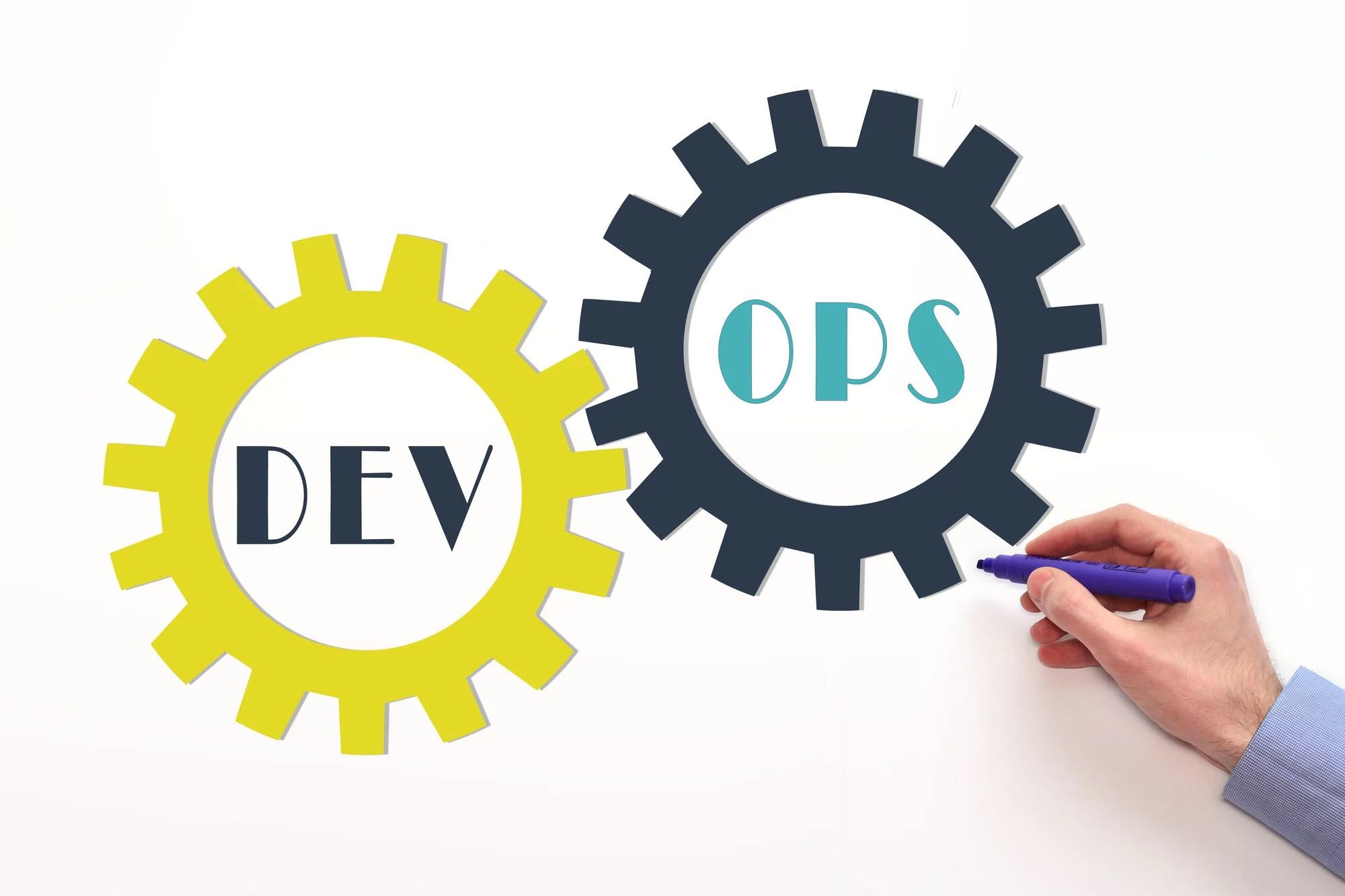
DevOps 101: Why Every Business Needs It
Posted by Walid Abou-Halloun Date: Aug 2, 2022 9:23:05 AM
IT operations can be a nightmare when there’s no organisation behind it. One single mistake can mean hours upon hours of time wasted trying to fix it. This means a loss of revenue for you and low productivity all around.
Meanwhile, the development team is cutting corners to try and meet deadlines. This results in the operations team taking longer to produce an output.
With both teams struggling, what can be done to fix this?
The solution is surprisingly simple. By combining development and operations, productivity and efficiency can be streamlined.
Many big online companies like Amazon, Netflix, and Facebook use DevOps for that very reason. In fact, Amazon became very efficient because of DevOps. They got to a point where their developers were deploying new code nearly every 12 seconds.
But there’s more you can learn. Continue reading to discover why every business needs DevOps infrastructure.
What is DevOps?
Let’s start by breaking down the term.
By definition, DevOps is a revolutionary integration of software development and IT operations from two separate entities into one workforce.
It was first put into action by two Flickr employees, John Allspaw and Paul Hammond. It’s a modern approach to development and operations that focuses on cooperation and shared responsibility.
The two men behind the DevOps infrastructure believe that developers and operators shouldn’t hold stereotypes, nor expect the other to just do their job independently. Rather, both teams should work together and harness the same skills. That way, output is produced more quickly and efficiently.
As a career, it’s expected that a candidate for a role in DevOps can be both an IT operator or a developer.
Why Should You Utilise DevOps Infrastructure?
There are a number of reasons why you should utilise DevOps infrastructure for your software or app development process. A strong relationship between these two sectors can lead to an increase in work output, stability, and reliability.
Let’s dig deeper:
1. Stability for Operations
DevOps as an infrastructure provides a much more stable working environment than having the two sectors cut off from each other.
According to the 2017 State of DevOps Report, a team that utilises DevOps can experience 24 times faster recovery rate from failures. They also spend 22% less time on reworking mistakes.
With such stability, you can expect programs to get finished faster and more effectively than if the DevOps team was split in two.
2. Faster Detection of Software Problems
When developing software, mistakes are inevitable, but the consequences can be minimised if not prevented.
This is where DevOps infrastructure comes in handy. With collaboration and communication between the two parties, software errors can be detected far quicker than by developers alone.
The best part is that this can be done at any stage of the development cycle, even right at the beginning. Therefore, you can avoid lengthy delays in the product design and testing process.
3. Reduced Time to Reach Market
We now know that a good DevOps infrastructure allows you to detect errors quicker, but are you aware that it can get your product onto the market in record time as well?
How is this made possible?
Because DevOps ensures everyone is working together, the process of software development and testing goes much faster. This means your team can turn profit quicker and start working on new products.
But the advantage of this is not reflected in the profit margins alone.
DevOps also increases employee satisfaction and leads to a more efficient workplace.
4. Efficient Management of Resources
When two groups are working separately on the same product, you can expect resources to be at less than optimum management. Developers and testers are both waiting for resources to arrive, which may cause many delays and frustration for everyone involved.
Through the use of DevOps infrastructure, resources can be managed and distributed evenly among the entire team.
What’s the advantage of this? Efficient management of resources ensures that app and software development can be done faster and with fewer resources.
5. Shared Version Control
This remains a problem that always has operators and developers butting heads with each other.
Someone might not have the latest version of the software or there may be some crossed wires. This causes bad blood among team members and almost always, results in name calling, finger-pointing, and a decrease in efficiency.
By utilising DevOps infrastructure, everybody involved in the development process is on the same page. Both operators and developers have access to the latest version of a software or app.
Needless to say, alignment makes processes flow smoother.
6. More Appealing Workplace to Newcomers
Most newcomers in the workplace are anxious about how they’re going to blend with their new team.
But according to the same report, people working in high-performing DevOps teams were 2.2 times more likely to recommend their company as a great place to work.
This means that using DevOps helps not only grow your workforce but also for newcomers to fit in well with the team. This is important in a work environment where workers can experience stress and anxiety while they learn the ropes.
If you’re interested in adding more members to your team, there are services that can help you do this.
DevOps Create More Positive Working Communities
Utilising a DevOps team leads to an overall increase in workplace community and cooperation.
This can have massive implications for your business, ranging from increased productivity to a more positive working environment.
Here’s a breakdown of what this can mean for you and your team.
1. Greater Respect for Each Other
It’s not a surprise to any IT veteran that there can be some hostility between developers and operators.
Operators assume that most developers are lazy. On the other hand, developers think operators only exist to make their lives harder.
DevOps brings these two teams together and get them to see exactly what the other does. Upon merging these two sectors, it makes developers and operators dabble in each other’s jobs.
This could potentially be an eye-opening experience for someone who hasn’t thought about what stresses a developer or an operator goes through. By gaining this perspective, they come to respect each other’s expertise and responsibilities.
2. Trust Between Two Opposing Groups
Often, these two sectors know little about each other. It’s understandable that there may be some uneasiness between them.
Developers need to trust operators to talk about infrastructure changes, while operators need to have faith that developers will involve them in feature discussions.
Through DevOps infrastructure, trust can be gained and the business can work more effectively and efficiently.
3. No More Blame Game
In separate groups, devs and ops often blame each other for mistakes while the product is in development. Not only does this increase hostility and untrustworthiness, it leads to nothing getting resolved.
However, cooperating with each other to find a solution actually solves the problem with less hassle. DevOps infrastructure works on moving IT businesses away from playing the blame game and towards taking shared responsibility for their actions.
This is a vital skill for anyone to have, and it would be a missed opportunity not to include it in your workplace.
4. It’s Okay to Make Some Mistakes
It can be hard for some professionals to admit when they make a mistake, especially if it’s a big, delay-inducing mistake.
A developer may not want to admit that they were the one who broke their code. An operator may be unwilling to confess it was their poor communication which set the product’s release date back.
The unwillingness to acknowledge a mistake can be a massive setback to production.
By having a shared group where there’s transparency and a sense of community, it can be easier for everyone to share problems and solutions. Mistakes can then be addressed as a team and the product can be delivered faster.
Why You Need DevOps Infrastructure
If you want your workplace to be a place of efficiency, productivity, and positivity, you need to scrap separate teams and have a combined DevOps community!
To help create your new DevOps infrastructure, you’ll need assistance finding the perfect candidates.
This can be done in a four-step process, including:
- A consultation to determine the talent you’re looking for
- A discovery workshop to delve more deeply into your candidate preferences
- Recruitment of the perfect matches for your team
- Support after you’ve onboarded your new recruits
For more information or to set up a consultation, contact us.




